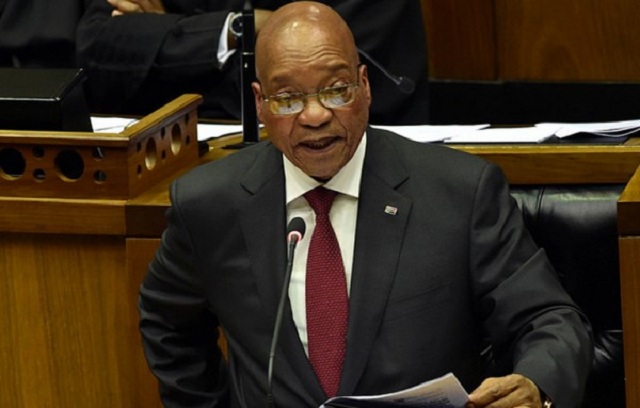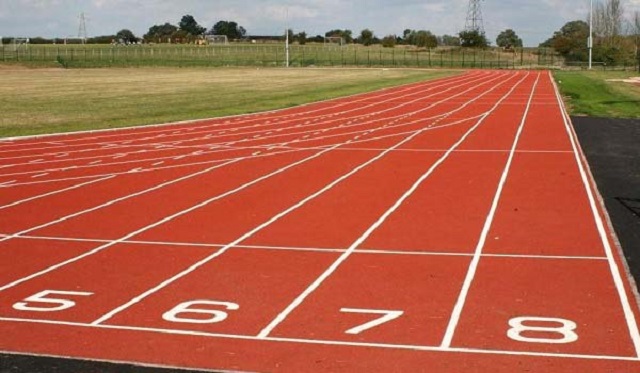Some MPs treat Parliament worse than beer hall: Zuma

Cape Town — President Jacob Zuma has condemned the behaviour of “certain” members of Parliament in his reply to the State of the Nation Address (Sona) on Thursday.
“Some MPs have decided to treat this august house like something worse than a beer hall. The conduct we saw in this house traumatised millions of South Africans,” he told MPs.
The president was responding to yet another violent encounter between the Economic Freedom Fighters and Parliament Protection Services last Thursday.
The EFF MPs refused to let Zuma speak and were violently removed from the House after an hour and a half of heckling.
Zuma thanked South Africans on Thursday for listening to Sona, “despite the shocking and unbecoming behaviour which was displayed in this House again last Thursday by some members”.
“Our people elect members every five years to represent them in Parliament and to fulfil the tasks outlined in the Constitution. The majority of members of Parliament understand the serious responsibility they have been entrusted with, and conduct themselves in a manner that gives hope to South Africans,” he said.
He said adults could disagree ideologically, but with respect. “We again appeal to those MPs and parties that have taken a decision to cause mayhem in the house to express themselves within the bounds of decency and decorum. Respect for one another and our Parliament will restore dignity of House and give hope to our people,” Zuma said.
Meanwhile, the election of the next leader of South Africa’s ruling African National Congress looks set to be a two-horse race.
Nkosazana Dlamini-Zuma, the former chairperson of the African Union Commission, has an early edge in the battle to take over the helm of the party from her ex-husband President Jacob Zuma at its December national conference, according to 11 of 26 analysts surveyed by Bloomberg on February 13 and 14.
Ten put Deputy President Cyril Ramaphosa ahead, and five said the contest was too close to call or it was too early to select a frontrunner. The survey sought the views of politics professors and lecturers from 10 South African universities, country risk advisors and research-group analysts.
“I doubt if there will be a third horse,” said Tinyiko Maluleke, a political analyst at the University of Pretoria, who added it was too soon to predict who would win. While ANC tradition should dictate that Ramaphosa succeeds Zuma, there is a strong move within the 105-year-old party to appoint its first woman leader, he said.
With the ANC continuing to dominate South African politics almost 23 years after it came to power in the nation’s first multiracial elections, the party’s next leader will probably replace Zuma, 74, as the nation’s president when his second and final term ends in 2019. Dlamini-Zuma has the backing of the ANC’s women’s league, while the Congress of South African Trade Unions, the country’s largest labour group and a close ANC ally, supports Ramaphosa.
No one has formally declared that they are running for the position, in line with ANC policy. Local media has reported that Baleka Mbete, the speaker of Parliament, and Zweli Mkhize, the ANC’s treasurer-general, may also be among the possible contenders.
Dlamini-Zuma (68) qualified as a medical doctor, and served as minister of health, foreign affairs and home affairs before being elected to head the AU Commission in 2012.
Ramaphosa (64) is a lawyer who co-founded the National Union of Mineworkers, helped negotiate a peaceful end to apartheid and led the drafting of South Africa’s first democratic constitution. He lost out to Thabo Mbeki in the contest to succeed Nelson Mandela as president in 1999 and went into business, amassing a fortune before returning to full-time politics in 2012 when he became ANC deputy president.
It’s even more tricky to predict who the ANC will choose as its next deputy leader, according to the survey. Five analysts identified Mkhize as the frontrunner for the deputy post as Mkhize, three picked David Mabuza, the premier of the eastern Mpumalanga province, and two named Ace Magashule, the premier of the central Free State province. The rest said they didn’t know or declined to say who they thought was leading.
— Sapa








Comments